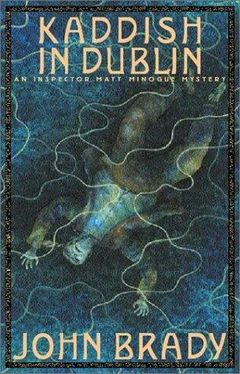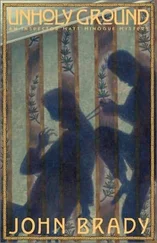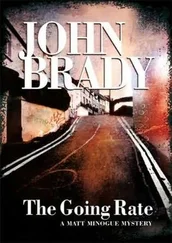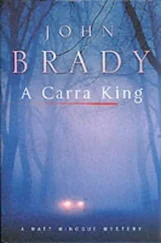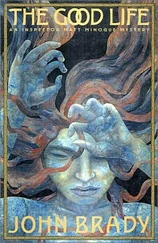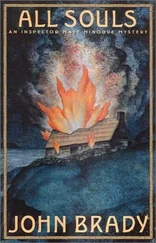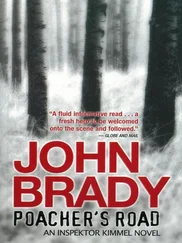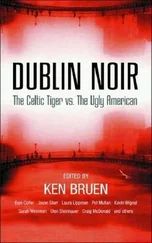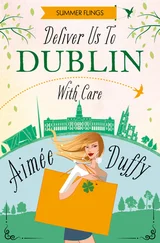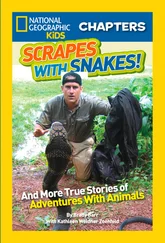John Brady - Kaddish in Dublin
Здесь есть возможность читать онлайн «John Brady - Kaddish in Dublin» весь текст электронной книги совершенно бесплатно (целиком полную версию без сокращений). В некоторых случаях можно слушать аудио, скачать через торрент в формате fb2 и присутствует краткое содержание. Жанр: Полицейский детектив, на английском языке. Описание произведения, (предисловие) а так же отзывы посетителей доступны на портале библиотеки ЛибКат.
- Название:Kaddish in Dublin
- Автор:
- Жанр:
- Год:неизвестен
- ISBN:нет данных
- Рейтинг книги:5 / 5. Голосов: 1
-
Избранное:Добавить в избранное
- Отзывы:
-
Ваша оценка:
- 100
- 1
- 2
- 3
- 4
- 5
Kaddish in Dublin: краткое содержание, описание и аннотация
Предлагаем к чтению аннотацию, описание, краткое содержание или предисловие (зависит от того, что написал сам автор книги «Kaddish in Dublin»). Если вы не нашли необходимую информацию о книге — напишите в комментариях, мы постараемся отыскать её.
Kaddish in Dublin — читать онлайн бесплатно полную книгу (весь текст) целиком
Ниже представлен текст книги, разбитый по страницам. Система сохранения места последней прочитанной страницы, позволяет с удобством читать онлайн бесплатно книгу «Kaddish in Dublin», без необходимости каждый раз заново искать на чём Вы остановились. Поставьте закладку, и сможете в любой момент перейти на страницу, на которой закончили чтение.
Интервал:
Закладка:
“Doing what?” asked Minogue. “I have no quarrel with the man. I have me own religion to be going on with, and he has his.”
“He got the idea fairly quickly, Minogue. After you canonized Marguerite Ryan.”
“Me? All I’m saying is that it takes just a little bit of imagination to see into how terrible her life must have been. We’re the race with the big hearts and the big imagination, are we? How is it that we’re also so good at applying rules in the abstract? I have nothing to fear from Marguerite Ryan or a hundred Marguerite Ryans, so I don’t, or even from a hundred hairy members of the Women’s Action Movement. I don’t for the life of me understand what the flap is about, unless all the men of Ireland, sitting on their bar stools, are getting premonitions about what a lot of them deserve.”
“You should have said that to His Eminence,” said Tynan drily. “He handed me this envelope and asked me several things before I opened it. I thought it was a few names, colleagues of Brian Kelly; maybe even a good-sized list of Opus Dei members in the Army and the Gardai, something that’d save us a lot of headaches and delays with our own internal investigations. I wasn’t hoping for too much.”
“What did he ask you? Conditions?”
“No, they weren’t conditions. He knew, or he had decided, that there couldn’t be. Frank is by no means a confused thinker when it comes to deciding what must be done in a crisis. I think he was appealing to a man he thought he knew, a man he’d known thirty years ago: that’s why he didn’t want you there. He asked me if I could treat the information with discretion, control it in respect of the possible consequences.”
Minogue felt the light breeze coming in the open door of the car.
“I looked down the list and I told him I couldn’t do it. I think he knew that already,” added Tynan.
Minogue’s scalp registered something which had yet to reach the parts of his brain that could interpret ideas to him. Tynan stopped tapping the envelope on his knee and he held it at arm’s length. The light cast shadows where the envelope had been opened by thumb and by finger. The jagged edges of the paper looked like the serrated edge of a bread knife to Minogue. Knife. List. Names.
“He asked me to think about the repercussions, think would this be justified.”
“What repercussions?”
“He didn’t outline them, just left them hanging like the better threats that are issued. He didn’t need to, because it’s quite plain to see. He had led us up to that point, I see now, to load me up so that I’d think twice, considering all the undeniably good work that they do… some of them, anyway.”
Minogue felt an artery beginning to tick under his jaw.
“Frank thought he could hook me on a weakness. He thought, he hoped, that I could not go through with what we must go through, because it would destroy and impair the work of so many virtuous people. A small sacrifice for the greater good… I must say that I hadn’t expected that of him. I realized then how much I had fallen by the wayside over the years, so that I couldn’t imagine any institution being worth the life of one man. Of two men.”
Minogue started in the seat. His thoughts rushed out: Brian Kelly, Paul Fine.
“He knew that too, of course,” Tynan continued. “He didn’t ask directly. Here he was by some twist of fate handing me something which would harm him and the institutions he Represents. Me, the spoiled priest, the one who took up with a Protestant wife. Me, the one he couldn’t mould. I didn’t tell him that it was because the Fines are Jews. I didn’t need to. I’m Sure Frank’s all too well aware of the significance, and I think that the symbolic side of that actually frightened him. Here,” he thrust the envelope at Minogue. “I can’t be sitting around here talking as if I was writing a bloody diary. There’s work to be done and quick.”
Tynan stepped out and closed the door.
“One more thing, very important, Minogue. Listen to me, carefully. A young man who must remain nameless went to a priest whom he had known in college. This priest was home from a stay in Central America. After listening to the young man, this priest was able to persuade the man to make a confession to him. This young man is undergoing a crisis that has to do with his membership in Opus Dei. He read about the murder out in Bray, and, though he can’t finger anyone directly, he was privy to peculiar conversations in an Opus Dei house near Clonskeagh. He flew the coop. Are you following me?”
Minogue nodded.
“Right. This pal of his from years back nearly had a fit, I was told. Radical man, the new generation of missionary. Didn’t know what to do with what he had heard, so he wrote down the names he remembered and out he marched to the Archbishop’s house, preceded by a few phone calls. Fair play to Burke, he sized up the problem and worked his way around the confessional vow.”
“He gave me the distinct impression that he was going to chastise anyone connected with this,” said Minogue. “Including servants of the State.”
“He’s not wild about Opus Dei, believe it or not. But he won’t go another inch with us.”
“Meaning we’ll not know who this rebel Opus Dei fella is? Can’t interview him?”
“Just so. What we get from him is a list of persons who may be engaging in a political conspiracy. What we do not get is this: one iota of testimony pertinent to your murder cases,” Tynan concluded crisply.
“Run it backwards now,” Minogue tried. “Do any of these people know they’re on a sheet of paper in our fists?”
“I asked him what the chances were of those on the list knowing that we’re on to them. He said that the confessor told the source that it would be a grievous sin for him to alert the people on this list to the Gardai being in possession of this piece of paper. That’s as far as he can go. But the person may have told someone after the confession was made. He’s unstable, upset. It might be rough.”
Minogue frowned at Tynan’s face framed in the side window. Someone was singing in or near the pub.
“I’ll make my call first and get the thing going from the top. You’ll be wanting to talk to Jimmy Kilmartin then, I think.”
“Paul Fine?” Minogue called out, alarmed.
“You’re the one who built this house of cards, Minogue. You should know. I’d stake my pension on it.”
Minogue switched on the interior light and looked at the folded paper he had withdrawn from the envelope. There was no letterhead on the paper and it was addressed to no one. The door of the lounge bar banged after Tynan had entered. No remarks, no signature. The car creaked on its suspension. There were only the eleven typed names. Minogue did not recognize the first three but he noted that the ranks had been entered in brackets after them. Colonel Eamonn Gibney. Captain Lawrence Cunningham. The Garda rank was a sergeant: Eoin Morrissey. Garda Sergeant Eoin Morrissey worked in the Technical Bureau and Minogue had met him several times in the company of Shea Hoey at Ryan’s pub in Parkgate Street.
Minogue realized that he was still holding his breath. His forehead was pounding now. He looked up from the paper to the windscreen’s circus reflections of dashboard and steering wheel. He looked down at the paper again, at the last name. It was still there, still the same. Fintan Gorman.
Minogue elbowed himself out of the car and walked hurriedly to the door of Slattery’s lounge.
CHAPTER SEVENTEEN
This is what we’re dealing with,” said Gallagher. He turned to the unwieldy tape-recorder on the desk.
It was Friday evening. Kilmartin, Minogue and Hoey were seated in Chief Superintendent Farrell’s office. Farrell, who had come from a meeting with the Garda Commissioner and Tynan, seemed impatient, even more than his usual curt and belligerent self.
Читать дальшеИнтервал:
Закладка:
Похожие книги на «Kaddish in Dublin»
Представляем Вашему вниманию похожие книги на «Kaddish in Dublin» списком для выбора. Мы отобрали схожую по названию и смыслу литературу в надежде предоставить читателям больше вариантов отыскать новые, интересные, ещё непрочитанные произведения.
Обсуждение, отзывы о книге «Kaddish in Dublin» и просто собственные мнения читателей. Оставьте ваши комментарии, напишите, что Вы думаете о произведении, его смысле или главных героях. Укажите что конкретно понравилось, а что нет, и почему Вы так считаете.
